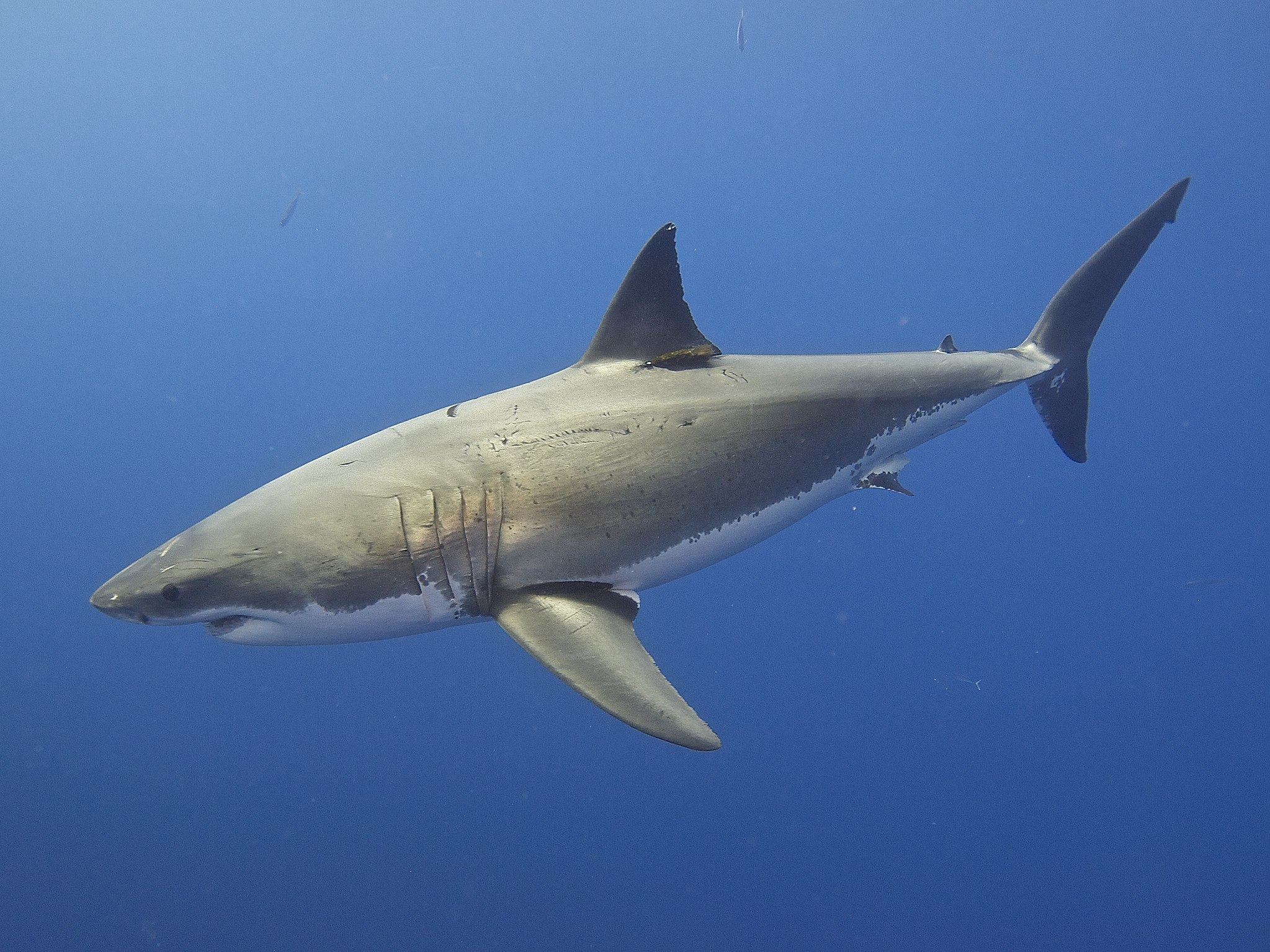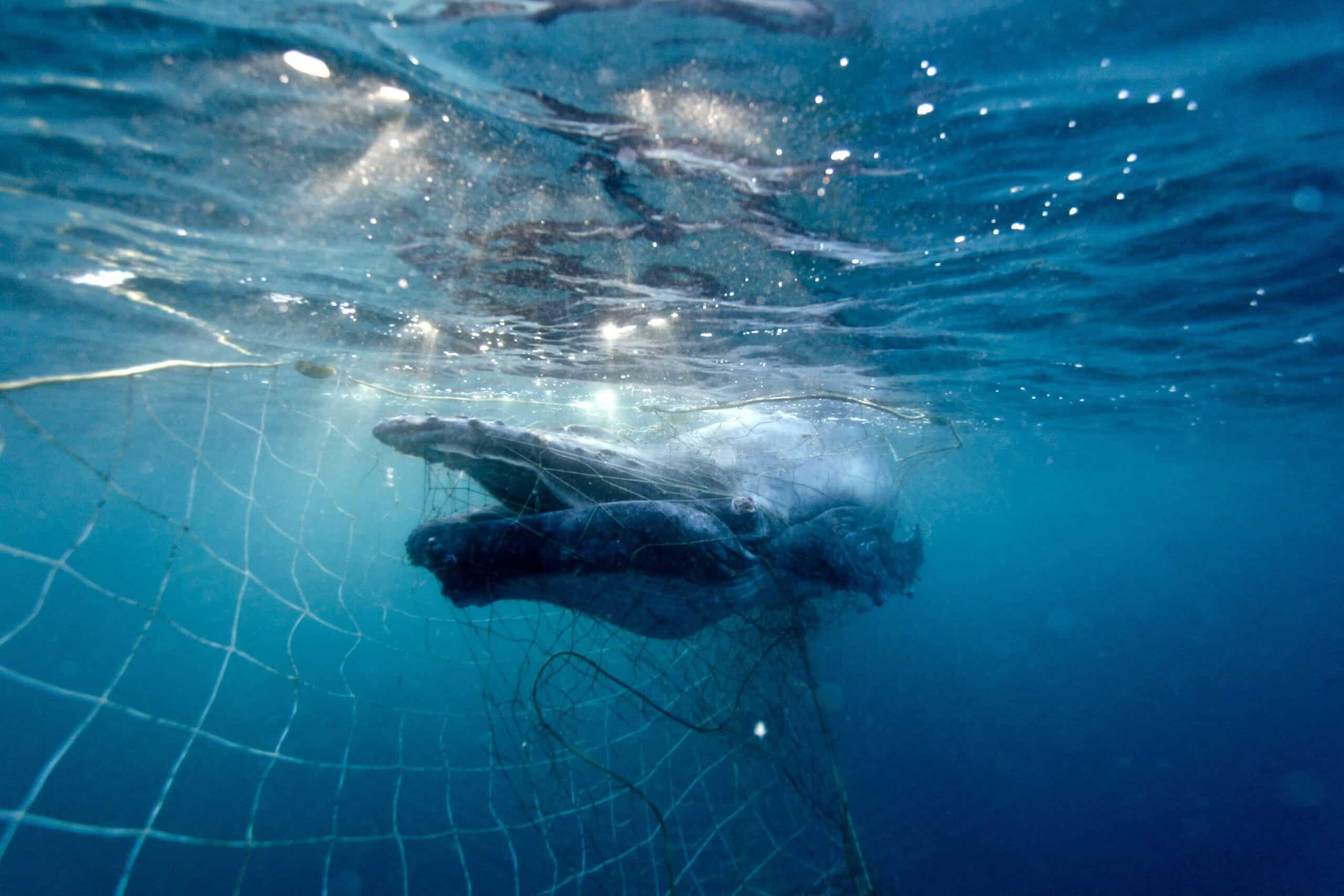Research shows that Australia’s great white sharks are highly related to each other and may consist of fewer than 500 breeding animals. SYDNEY, 24 June 2025: Latest research has found Australia’s great white shark population is much smaller than expected, increasing their vulnerability to further population threats. The population...
Marine conservation groups have applauded the Queensland Government for sustainable fisheries reforms that will reduce the number of sharks killed in the Sunshine State’s waters.
From September 1, the quota for the amount of sharks that can be caught each year in Queensland fisheries has been reduced by 100 tonnes, which the Australian Marine Conservation Society (AMCS) and the Humane Society International (HSI) estimate will equate to as many as 20,000 sharks[1].
Announced last year, the ‘fins on’ rule that vastly improves the enforcement of illegal shark finning on the east coast will now be actively enforced. Having nearly a year to adjust to the new rule, all fishers are now required to bring fished sharks back to land in one piece, with their fins attached to their bodies.
The ‘fins on’ rule – or ‘fins naturally attached’ as it is formally known – is recognised around the world as fundamental for the management of sustainable fisheries and the conservation of threatened shark species. The change in Queensland now closes a loophole and stamps out the illegal and cruel act of shark finning along Australia’s east coast, including within the Great Barrier Reef.
AMCS shark scientist Dr Leonardo Guida said the reforms would bring benefits to ecosystems and threatened marine wildlife, including sharks.
“Healthy shark populations on the Great Barrier Reef will help to build resilience in that ecosystem in the face of warming waters due to the current climate crisis, so any reforms improving shark protections is encouraging news,”
“The Great Barrier Reef Outlook Report 2019 identified the ‘extraction of predators’ as ‘High Risk’ to the Reef’s ecosystem so it’s good to see that this issue is being addressed by the Queensland Government,” said Dr Guida.
HSI marine biologist Lawrence Chlebeck said: “Sharks are magnificent animals and as keystone species, sharks stabilise food chains. But commercial fishing within and around the Great Barrier Reef Marine Park has led to estimated population declines of large shark species populations by up to 92% in Queensland.”
“The scalloped hammerhead shark, an endangered species, is still fished out of the Great Barrier Reef for its fins, and can even end up on our plates as ‘flake’. Our national environment laws that allow this must be improved to not only prevent the fishing of endangered species but to actually facilitate population recovery.”
The Queensland Government’s enforcement of the ‘fins on’ rule does not cover fisheries in the Gulf of Carpentaria – a change that AMCS and HSI will continue to pursue.
AMCS and HSI remain concerned that a new strategy to improve the protection of endangered and threatened species will not reduce the number of iconic protected species such as sawfish currently being caught.
Dr Guida said: “Whilst we welcome the introduction of a Protected Species Management Strategy that includes protected shark and rays, the Strategy urgently requires fundamental improvements which should include independent electronic monitoring (cameras on boats) so a true picture of the protected species being caught in Queensland waters is understood.
“The Strategy also needs to include regional caps on how many protected species die, so if these caps are reached, areas can be closed to fishing so wildlife populations can recover.”
The changes came into force on 1 September and form part of the Palaszczuk government’s Sustainable Fisheries Strategy 2017-2027.
Other rule changes are part of the biggest improvements to Queensland fisheries in decades and include catch limits and harvest strategies that will ensure more fish are kept in the water, improving the sustainability and resilience of the ecosystem.
[1] Median weight of retained sharks is 5kg based on Leigh, G (2015) Stock assessment of whaler and hammerhead sharks (Carcharhinidae and Sphyrnidae) in Queensland, Australia. Technical Report. Queensland Department of Agriculture and Fisheries.


